The Future of Victoria’s Native Forests – A Public Symposium
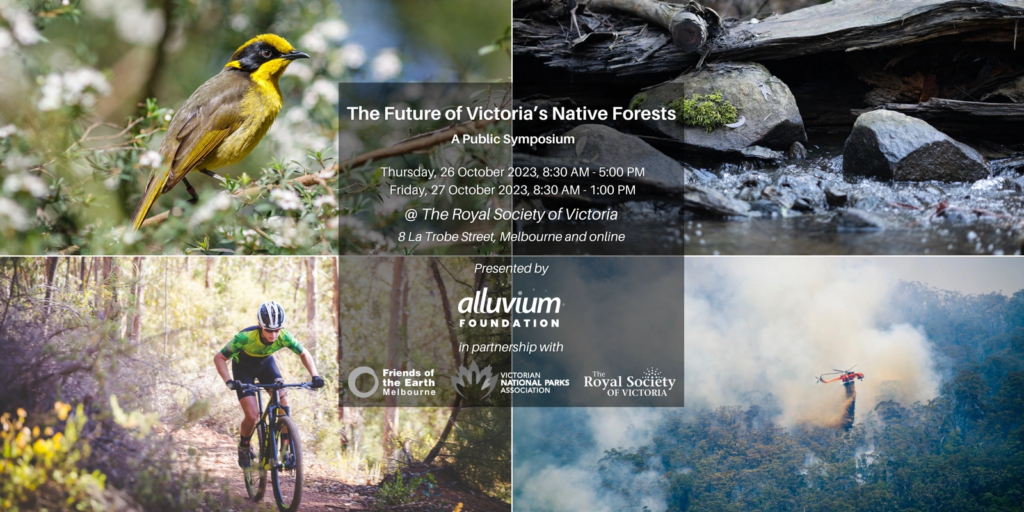
Ticketing has now closed for attendance in-person or via Zoom webinar, however you can still watch along via our YouTube Live channel:
https://www.youtube.com/@RoyalSocietyVic/streams
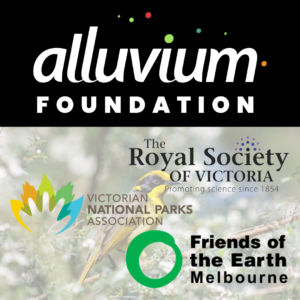
This public symposium will explore options and issues for securing the future of these forests. We will convene scientists, land managers and First Nations expertise to explore and discuss perspectives informed by scholarship, cultural practices and ecological values. These scholars, policy makers and knowledge holders will address bushfire prevention, recovering threatened species, sustaining human health and wellbeing, and adapting to the regional impacts of climate change. We seek to understand how the end of logging operations will change the way native forests are managed, the challenges of future management, and the opportunities that this land-use change provides.
The program will be conducted over two days: from 8:30am to 5:00pm on Thursday 26th October, and from 8:30 to 1:00pm on Friday 27th October. The speakers and full program, with short abstracts, are now posted here. You can watch proceedings via YouTube.
Use the tabs to navigate to the basic program elements, or you can download a more fulsome PDF of the Program here: The Future of Victoria’s Native Forests.
Day One: Thursday, 25th October, 2023
8:30AM – Registration (Coffee/Tea on Arrival)
9:00 – Welcome and Opening Ceremony (concurrent Zoom Webinar begins)
- Uncle David Wandin, Wurundjeri Woi Wurrung Elder & Cultural Practices Manager (Fire and Water)
- Djirri Djirri Dancers
- Mr Rob Gell AM & Professor Ian Rutherfurd
9:40 – Session One: Past, Present and Future
- Professor David Lindenmayer – The Future of Victoria’s Native Forests: A major restoration challenge and opportunity
- Uncle Larry Walsh – Taunwurrung storytelling from the inaugural Elder in Residence for Museums Victoria
- Associate Professor Lauren Bennett – Looking Out for the Health of Mixed-Species Eucalypt Forests
Panel Chair: Professor Tim Entwisle
11:10 – Morning Tea
11:40 – Session Two: Fire and Restoration
- Associate Professor Emeritus Michael Feller – Fire Management for Multiple Forest Values
- Dr Chris Taylor – The Mountain Ash Forests of Victoria: Present, past and possible futures
- Adjunct Associate Professor Philip Zylstra – From Colonisation to Cooperation with Country
- Uncle David Wandin – Cultural Burns on Wurundjeri Woi Wurrung Country
Panel Chair: Ms Miki Perkins
1:30 PM – Lunch
2:10 – Session Three: Forest Stewardship for Multiple Values
- Ms Mellissa Wood – Perspectives on the Forests from the Victorian Environmental Assessment Council
- Ms Marjorie Thorpe – GunaiKurnai Perspectives on Forest Country
- Professor Rod Keenan – Managing for Multiple Values
- Adjunct Professor William Jackson – Reflections on Forest Management: From global to local
Panel Chair: Ms Alana Mountain
3:50 – Afternoon Tea
4:10 – Session Four: Fire Management
Dr Simon Watson – The Current State and the Next Fire Years of Fire Ecology for Better Bushfire Management in Victoria
4:40 – Conclusion of Day One
Professor Tim Entwisle – Closing Reflections
Day Two: Friday, 26th October, 2023
8:30AM – Registration (Coffee/Tea on Arrival)
8:45 – Welcome and Acknowledgement of Country (concurrent Zoom Webinar begins)
- Mr Rob Gell AM – Acknowledgement of Country & Summary of Day One
9:40 – Session Five: Ecosystem Services, Forest Values and Wellbeing
- Dr Katherine Trebeck – Introduction to a Wellbeing Economy: a lens on our forest commons
- Mr Jim Binney – Measuring Multiple Forest Values
- Dr Kate Dooley – Enhancing Carbon Values in Public Forests
- Dr Shane Haydon – Forests and Water Supply for Melbourne: A tale of two forests
Panel Chair: Mr Rob Gell AM
10:40 – Morning Tea
11:00 – Session Six: Outdoor Values and Land Management
- Dr Jennifer Mason – Dhudhuroa Perspectives on Forest Country
- Mr Matt Ruchel – A Future for the Forest: Managing Victoria’s forests for all their (non-extractive) values
- Mr Andrew Knight – Commercial Recreation in Forests
- Mr Peter Jacobs – The Major Invasive Species of Victoria’s Eastern Forests
Panel Chair: Ms Mellissa Wood
12:40 – Conclusion of Day Two and Symposium Close
Mr Rob Gell AM – Closing Reflections
1:00 PM – Lunch
Abstracts & Speaker Profiles
The future of Victoria’s native forests – a major restoration challenge and opportunity
Professor David Lindenmayer, Fenner School of Environment and Society, The Australian National University
Victoria’s forests have been subject to extensive deforestation and forest degradation over the past 150 years. This has resulted from land clearing, logging, repeated fire, and the interaction of these drivers. Biodiversity is declining, key components of stand structure have been subject to widespread loss, large areas of forest have failed to regenerate, and much of the forest estate is now in a highly flammable state. At the same time, the native forest logging industry has been highly uneconomic for several decades, with large debts and major declines in employment. A new trajectory for Victoria’s forests is clearly needed. This talk presents a western-science-based vision for the future underpinned by 40 years of detailed empirical studies. The vision includes an expanded and co-managed park system, and investments in forest regeneration, feral animal control, and targeted fire management.
 About the Speaker
About the Speaker
Professor David Lindenmayer is a world-leading expert in forest ecology and resource management, conservation science, and biodiversity conservation. He currently runs 5 large-scale, long-term research programs in south-eastern Australia, primarily associated with developing ways to conserve biodiversity in farmland, wood production forests, plantations, and reserves. He has maintained some of the largest, long-term research programs in Australia, with some exceeding 39 years in duration.
Looking out for the health of mixed-species eucalypt forests
Associate Professor Lauren Bennett (School of Agriculture, Food and Ecosystem Sciences, The University of Melbourne)
Mixed-species eucalypt forests – Victoria’s most extensive forests – are often assumed to be perpetually healthy due to the perceived hardiness of the dominant eucalypts and their capacity to resprout after even the most severe disturbances. Lauren will examine this assumption through the lens of recent research on the responses of mixed-species eucalypt forests to changing climate and fire regimes, highlighting potential chinks in the forest armour that might need closer attention.
 About the speaker
About the speaker
Associate Professor Lauren Bennett holds scientific expertise in forest ecosystem sciences with a focus on ecosystem processes (carbon and nutrient cycling), forest carbon assessment, soil science, ecophysiology, tree demography, and fire ecology. She is the author of over 100 peer-reviewed journal articles and scientific reports and has led multiple research projects in forest and fire sciences.
Fire management for multiple forest values
Associate Professor Emeritus Michael Feller (Department of Forest & Conservation Sciences, University of British Columbia)
Native forests have many social, ecological, and economic values that must be considered in their management. Forest fire management has certain basic principles which have not always been followed in Victoria, where such management has almost exclusively focused on fuel reduction, primarily by prescribed burning. Many forest values have been neglected, and consequently lowered. Past timber harvesting and fire management activities have resulted in relatively high flammability forests. Both the practice and the tools used for forest fire management need improvement. These issues are discussed and recommendations made to improve fire management so that it considers all forest values.
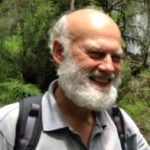 About the speaker
About the speaker
I have taught university forest fire science and management courses for almost 30 years and have conducted research both in Eucalyptus forests in Melbourne’s Maroondah water supply catchment as well as in forests throughout British Columbia. The British Columbian research included studies of forest fuels, forest fire and prescribed burning ecology, and many studies of slashburning effects on vegetation, soils, and water. During the last 10 years I have participated in citizen science studies in Victoria, which have included fuel assessment in drier Central Highlands forests.
Time to work together to care for Victoria’s forests
Professor Rod Keenan (Chair, Victorian Branch of Forestry Australia, Honorary Professorial Fellow, University of Melbourne)
Victoria’s forests are in trouble. Invasive pests, weeds, neglect, past exploitation, and the changing climate are taking a huge toll and increasingly intense fires are impacting all types of forests: those in protected areas, native production forests, private native forests and plantations. Large areas in national parks and state forests are facing complete changes in species composition.
This should be a wake-up call to all those who depend on, and care about, forests. Instead, we see only bickering, fighting and division. Millions of dollars have been spent on lawyers and experts in court cases, and now perhaps billions on compensation to industries, contractors and workers. This money could have been spent in the forests, addressing future challenges.
No organization or agency is taking a holistic view of Victoria’s forests. Policies have mostly focused on stopping an industry rather than exploring new approaches. Resources and management capacity have been withdrawn, wildfires are more difficult to suppress, and a lack of information on the overall health of our forests, or the status of forest dependent species, impedes decision making.
Rather than simply shutting down an industry, we need to keep options open. By putting aside our differences and looking at the big picture, can use our collective wisdom to design a new silviculture for Victorian native forests. This can be used as a basis to invest in more diverse, resilient, forests and landscapes with greater long-term capacity to provide cultural, environmental and economic benefits. By working together, we can build trust through inclusive processes involving the experience and wisdom of Traditional Owners, forest managers, forest scientists, environmental NGOs, industry and other community members. These can be used to develop better ways – the right ways – to care for forests and meet community needs for timber, conservation, recreation and many other benefits. By working together we can ensure all Victoria’s forests, and the communities that depend on them, are productive, healthy, and resilient.
 About the speaker
About the speaker
Rod is former Professor and Chair of Forest and Ecosystem Sciences at the University of Melbourne. Rod has research interests in sustainable forest management, forests and climate change, ecosystem services and forest and climate policy. He has worked across Australia, in Canada, Papua New Guinea and South East Asia. He was a member of the UN-FAO Advisory Group for the Global Forest Resource Assessment from 2003 to 2015.
Forests and Water Supply for Melbourne – A Tale of Two Forests
Shane Haydon (Melbourne Water)
Melbourne’s protected forested water supply catchments provide a high quality, low risk, low energy, low cost water supply for Melbourne. This is largely due to the restriction on human activities in these catchments. There are basically two forest types in these protected catchments, and the risks to streamflow yield and water quality from each of the two dominant forest types are quite different. For both forest types, fire can have a major impact on water supply from these forests. Fire impacts and logging can have similar negative impacts on streamflow yield in Mountain Ash forests and the long term research on this topic will be briefly discussed.
 About the Speaker
About the Speaker
I started work at Melbourne Water in 1990 as a research hydrologist examining the impact of logging and fire on water yield and water quality in Mountain Ash forests. I have managed the drinking water research program since 2007, which has focused on drinking water quality and quantity impacts from fires, and pathogens in forested catchments.
Major Invasive Species of Victoria’s Eastern Forests
Mr Peter Jacobs (Conservation Officer Victoria: Invasive Species Council)
Peter will discuss the major invasive animal and plant species impacting on Victoria’s eastern forests and the threat they present to natural, cultural and social values. He will offer perspectives on management challenges, what is needed to manage invasive species in these forests, fire recovery and some of the current legislative, policy and social constraints that hinder effective control. Feral deer and other vertebrate pests will be a focus along with major weed species. He will touch on new opportunities to expand and connect protected areas in the east into areas previously set aside for timber harvesting.
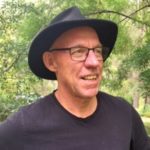 About the Speaker
About the Speaker
Peter has had a long career in protected area planning and management around eastern Victoria. He was involved in preparing the first management plans for the Alpine National Park and was Chief Ranger for the Alps with Parks Victoria where he managed large pest and weed programs along with his team. Peter is currently a Conservation Officer with the Invasive Species Council with a focus on feral deer.
Introduction to a Wellbeing Economy: a lens on forests as commons’
Katherine Trebek (University of Edinburgh)
Katherine will outline the origins and key elements of a wellbeing economy. She will look at how a range of entities are putting nature on the table in their decision making.
 About the Speaker
About the Speaker
Katherine Trebek is a political economist and advocate for economic system change. Her roles include writer at-large at the University of Edinburgh, consultant to and member of the Club of Rome, and Economic Strategy Advisor to The Next Economy, and thinker-in-residence at the ANU’s Planetary Health Hothouse. She co-founded the Wellbeing Economy Alliance and also WEAll Scotland, its Scottish hub, and instigated the group of Wellbeing Economy Governments (WEGo).
Her most recent book The Economics of Arrival: Ideas for a Grown Up Economy (co-authored with Jeremy Williams and published by Policy Press) was published in January 2019 and her major report Being Bold: Budgeting for Children’s Wellbeing was launched in March 2021.
Enhancing carbon values in public forests
Dr Kate Dooley (University of Melbourne)
Maintaining and enhancing carbon values in Victoria’s native forests rests on ecosystem integrity. This talk will cover accounting and management frameworks that recognise the inherent connection between carbon and biodiversity values for climate responses.
 About the Speaker
About the Speaker
Kate Dooley is an ARC DECRA Research Fellow at the University of Melbourne focussing on equity and justice in climate mitigation policies and in land sector transitions. She was the lead author of the 2022 Land Gap Report which provided the first global assessment of land area in national climate mitigation pledges.
The current state and the next five years of fire ecology for better bushfire management in Victoria
Dr Simon Watson (Principal Scientist, Forest and Fire Ecology – Knowledge Planning and Risk, Policy and Planning Division, Bushfire and Forest Services, Department of Energy, Environment and Climate Action, Victoria)
Human-induced climate change has led to an increasing incidence of megafires globally. These fires have caused massive plant and animal mortality, shifted the composition of species in ecosystems, and driven vast areas of vegetation into highly vulnerable states. This has led to calls for bushfire management strategies to support better ecological outcomes. The array of potential strategies for bushfire management that could deliver these outcomes is diverse and the capacity to manipulate ecosystems is varied. As such, successful bushfire management hinges on being able to estimate the outcomes of alternative strategies and measure their potential for delivering benefits. This presentation provides an overview of the application of fire ecology science in bushfire management in Victoria, a description of the technical capabilities and programs, and the view for the next five years of advancements in the field.
 About the Speaker
About the Speaker
Simon Watson is the Principal Scientist Forest and Fire Ecology for the Department of Energy, Environment and Climate Action. Simon joined the Department in 2018, after 12 years as a researcher in academia. Over these 17 years, Simon has contributed an extensive body of research investigating the effects of fire on biodiversity and conservation of species. Simon’s work within the department aims to ensure that the Victoria’s bushfire management is informed by the best available scientific evidence.
From colonisation to cooperation with country
Dr. Philip Zylstra (Adjunct Associate Professor, School of Molecular and Life Sciences, Curtin University).
The end of native forest logging in Victoria presents the opportunity for a new direction, and a fundamental challenge to thinking that dates from the beginning of colonisation. Our fire records tell us that the legacy of logging is a landscape now deeply prone to high severity fire, and we have begun to see why this is as rigorous science gradually replaces the old thinking. I will summarise what we know about the fundamental controls that forests have placed on fire since Gondwana, how this validates what so many elders of country have known for so long, and why industries of disturbance and exploitation disrupt these natural controls and convert forests into dense, flammable regrowth. The challenge before us is to leave this old authoritarian thinking behind and learn to cooperate with country; to restore and reinforce the ecological controls on fire in time to weather the mounting storm of climate change.
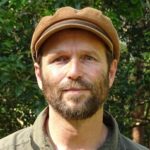 About the Speaker
About the Speaker
Dr Philip Zylstra came into bushfire research from a background in fire management and remote area firefighting. Since that time he has developed the first and only peer-reviewed fire behaviour model for most Australian forests, as well as the first model globally to calculate the direct effects of fire on flora, fauna and soils. His work focuses on understanding the ways that our interaction with forests affect fire risk. Using fire history analysis and state-of-the-art modelling, Phil’s work reconciles deep knowledge from First Peoples with forest ecology and a complex understanding of fire behaviour to provide critically-needed guidance in fire management.
Reflections on forest management from global to local
Dr Bill Jackson (Adjunct Professor at the University of the Sunshine Coast, Tropical Forests and People Research Centre)
This talk will reflect on how the management of Victoria’s forests can contribute to international targets and policies on forests and vice-versa.
 About the speaker
About the speaker
With a career spanning over four decades, Dr Jackson has directly managed forests including as a field forester and Director of National Parks for Victoria, has worked on global conservation and forest policy as Head of Forest Conservation and Deputy Director General for the International Union for Conservation of Nature, and has provided advice to Victorian Government agencies on forest management. He was the chief author of the 2016 Australian State of the Environment report and is currently working on tropical and temperate forest conservation issues in Asia and PNG.
Mountain Ash Forests of Victoria – present, past, and possible futures
Chris Taylor (Australian National University)
This presentation will look at the state of Victoria’s iconic Mountain Ash Forests, which are among the tallest forests in the world. Defined by their towering Mountain Ash trees, these forests are now at a historic crossroads. For decades, the Mountain Ash have been targeted for industrial scale logging. With the added impact of bushfires, recent years have seen a dramatic decline in the capacity for these forests to provide logs to industry. In response, the Victorian Government announced that logging in these and other forests will cease by the end of the year. In my presentation, I will discuss the current state of the Mountain Ash Forests. I will cover historical accounts of what these forests were observed to be like, including those as documented by First Nations People and by early colonists following the British Invasion. My presentation will conclude on some likely future scenarios, based on several studies we have conducted analysing changing trends across these forests.
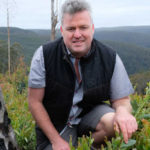 About the speaker
About the speaker
Dr Chris Taylor is a research fellow at the Fenner School of Environment and Society, Australian National University. His research focuses on the landscape scale changes across the Mountain Ash and surrounding forest ecosystems in Victoria. These include disturbances by logging and fire. Chris has researched and analysed changes across the Mountain Ash forests for nearly 20 years. Chris has also worked in the field of forest certification, with an emphasis on standards and compliance.
A New Chapter for Public Land Forests
Mellissa Wood (Chair, Victorian Environmental Assessment Council (VEAC))
VEAC and its predecessors, the Land Conservation Council and the Environment Conservation Council, have played a major role in understanding and shaping forest management in Victoria for more than 50 years. With the Victorian government’s announcement in June this year that logging would cease in Victoria’s native forests from January 2024, a new chapter begins. Where previous investigations were often characterised by fierce controversies between timber harvesting and nature conservation, for example in east Gippsland, the Grampians, the Alpine region and the forests around Melbourne, the focus now shifts to different challenges and opportunities such as the increased recreational use of forests arising from the growing population and improved access, environmental impacts on ecosystems from climate change and other threats. It also offers opportunities for Aboriginal self-determination leading to direct management of forests by Traditional Owners.
 About the speaker
About the speaker
Mellissa Wood has over 30 years’ experience in leading and providing scientific and strategic advice on sustainable development, conservation and environmental management and sustainable food systems. She has held Executive positions with the Australian Government and internationally, including UN Food and Agriculture Organization (FAO) and CGIAR. Her international expertise covers Sub-Saharan Africa, SE Asia, Europe and the Pacific.
Mellissa was General Manager, Australian Centre for International Agricultural Research (ACIAR) and member of CGIAR’s System Council and System Management Board. Prior, she was Director of the Australian International Food Security Centre, worked at the UN FAO, Rome as a Director, Global Crop Diversity Trust and spent 15 years at the Bureau of Rural Sciences, Federal Department of Agriculture, Forestry and Fisheries providing scientific advice to support natural resource management decision-making, including representing Australia on international forest policy and technical processes with the UN FAO Global Forest Resources Assessment and Montreal Process. Mellissa is currently Chair, Victorian Environmental Assessment Council (VEAC), member of the Eminent Panel on Community Engagement for the Central Highlands state forests and Visiting Scientist, CSIRO. She holds a Master of Public Policy (Development Policy) from Crawford School of Public Policy and Bachelor of Science (Resource and Environmental Management) from the Australian National University and is a graduate of the Australian Institute of Company Directors (GAICD).






